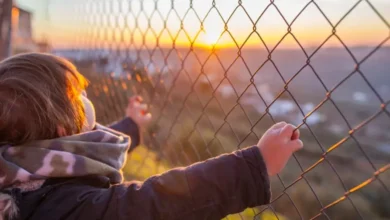The problem of teenagers and social media: how to avoid tragedies

With the proliferation of the internet and digital platforms, teenagers’ lives are increasingly centred on social media. TikTok, Instagram, YouTube, and other platforms are becoming a place for communication, self-expression, and information. However, these platforms also carry risks associated with uncontrolled access to content that can be harmful, dangerous or even tragic. The recent scandals in Europe related to TikTok are a reminder that parents should pay special attention to their children’s online lives. This issue is especially relevant for Ukraine, where teenagers are just as active in social media, and the issue of content control is not yet sufficiently developed.
Scandal in France: a lawsuit against TikTok
In France, seven families have filed a class action lawsuit against TikTok after dangerous content on the social network led to tragic consequences. Reuters reports. Two 15-year-old teenagers committed suicide, according to the lawyer, after watching videos promoting suicide and other dangerous behaviours. This is the first such case in Europe where a platform has been accused of contributing to tragic events by failing to properly monitor the content that reaches underage users.
The families’ lawyer, Laure Boutron-Marmion, insists that TikTok, as a commercial company providing its product to minors, should be held responsible for the harmful effects of its product. TikTok has not yet commented on this lawsuit, but the company has previously asserted its responsibility for the mental health of young users and has taken certain measures to protect them.
This situation raises questions about how social media should protect young people from dangerous content. It is also a challenge for parents around the world, including in Ukraine, where access to content is less controlled and teenagers may face similar risks.
How Ukrainian parents can protect their children
The problem of harmful content on social media is a global one, and it can only be avoided if parents are actively involved in the process of upbringing and using technologies that ensure the safety of their children. Here are some tips that can help parents protect their children from the negative impact of social media.
- Have regular conversations about online safety
- It’s important to discuss online safety with your children and explain that not all content is useful or safe. Explain why they should be careful and avoid suspicious or dangerous content.
- Explaining risks and teaching critical thinking
- Children should understand that information on the Internet can be distorted or manipulated. Teach them how to think critically, recognise the signs of false information and avoid content that may cause anxiety or stress.
- Set time limits for use
- Research shows that excessive social media use leads to stress and depression. Agree with your children to limit the time they can spend online. This will help reduce their addiction and help them maintain their mental health.
- Privacy settings and parental controls
- Use the privacy features on social media that allow you to restrict access to content that is not appropriate for children. It is also worth using parental controls that allow you to track your child’s activity and block potentially harmful content.
- Developing a trusting relationship
- Trust between parents and children is the foundation of safe social media use. Make it clear to your children that they can share their thoughts and concerns with you and that you are always there to help.
- Follow the news about social media
- Pay attention to scandals or problems that arise with social media, such as the situation in France. Such incidents allow parents to learn about new dangers and respond in time.
- Support for mental health
- Talk to your children about their feelings and experiences and help them cope with emotional stress. If you suspect that your child is under the influence of harmful content, do not hesitate to contact a specialist.
TikTok, like many other social media platforms, has to ensure the safety of underage users. The problem of dangerous content on social media is now going global, and companies providing platforms for teenagers must step up their efforts to filter out harmful videos and materials.
Incidents such as the French one highlight the importance of paying attention to children’s online lives and demonstrate that parents can and should play a key role in keeping their children safe. Social media can be a useful tool, but only if teenagers are aware and protected. Dialogue with children, setting rules and controlling access to content are key to maintaining their mental health and emotional stability in the digital world.





